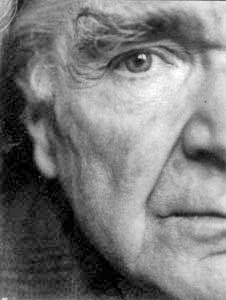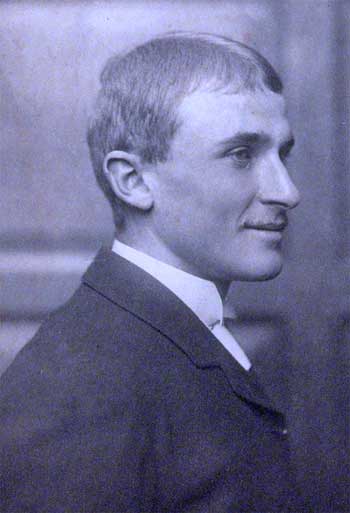
Emil M. Cioran twists my gut with laughter. His own mother once said that if she'd known he would grow up to be so depressed sheʼd have aborted him. He suffered chronic insomnia and rode his bicycle relentlessly through the countryside at night to try and weary himself enough to sleep. He was born in Romania, in 1911, the son of a Greek Orthodox priest. As Hitler rose to power he became anti-communist, anti-Semitic, pro-fascist, and confident that Hitler and his ally, the Romanian fascist dictator, were in the right. Then in the mid-1930s in Romania, when he was still in his early 20s, his first book was published, On the Heights of Despair, followed by The Book of Delusions, and Tears and Saints. In the lattermost work He was looking for a reason to become a believer by exploring the lives of some minor saints but was disillusioned by their penchant for suffering. To share a line from that work, “Schopenhaurer maintains that, if we were to invite the dead back to life, they would refuse. I believe, on the contrary, that they would die a second time from too much joy.” Published in Bucharest in 1937, the book caused quite a stir due to its dark humor that many considered blasphemous. That same year he moved to Paris and wrote A Short History Of Decay, All Gall is Divided: Aphorisms, The Temptation To Exist, History and Utopia, The New Gods, The Trouble With Being Born, Drawn and Quartered, and, Anathemas and Admirations, in that order.
Cioran said his “rejection of God sprung from agonic frenzy.” He complained that he could not feel “at home in God,” that he was a perpetual “exile in Him.” No matter how hard Cioran strove to love and to believe Christianity, his fervor was always undermined by doubt and despair. “My doubts cannot take me further than the shadow of His heart.” Another time he wrote, “One does not need to be a Christian in order to fear the Last Judgment, or even to understand it. Christianity did nothing but exploit human anguish to make profits for an unscrupulous divinity whose best ally was dread… Christianity delights in the sight of bloodstains [or if one is Protestant, singing hymns about ‘the blood’], its martyrs have transformed the world into a bloodbath. In this religion of blazing twilights, evil defeats the sublime… The ultimate cruelty was that of Jesus: leaving an inheritance of bloodstains of the cross.” Jesus, “the bloodthirsty and cruel Christ,” [was] “lucky to have died young. Had he lived to be sixty, he would have given us his memoirs instead of the cross.”
Cioran disagreed with “those who try to eliminate the fear of death through artificial reasoning… because it is absolutely impossible to cancel an organic fear by way of abstract constructs.” (from Searching for Cioran)
His work has been compared to that of the most famous French stylists, and it began appearing in English translation in the 1990s. Late in life Cioran gave up writing, not wanting to “slander the universe” anymore, and died a few years later (in 1995) after an encounter with an over-excited dog. Still, his words continue to provoke and enlighten, though not everyone can take them in large doses. So here's a small dose:
It is difficult, it is impossible to believe that the Good Lord—‘Our Father’—had a hand in the scandal of creation. Everything suggests that He took no part in it, that it proceeds from a god without scruples, a feculent god. Goodness does not create, lacking imagination; it takes imagination to put together a world, however botched. At the very least, there must be a mixture of good and evil in order to produce an action or a work. Or a universe. Considering ours, it is altogether easier to trace matters back to a suspect god than to an honorable one. (The New Gods)
A human being possessed by a belief and not eager to pass it on to others is a phenomenon alien to the earth… Look around you: everywhere, specters preaching, each institution translates a mission; city halls have their absolute, even as the temples — officialdom, with its rules — a metaphysics designed for monkeys… Everyone trying to remedy everyoneʼs life: even beggars, even the incurable aspire to it: the sidewalks and hospitals of the world overflow with reformers. The longing to become a source of events affects each man like a mental disorder or a desired malediction. Society — an inferno of saviors! (from “Genealogy of Fanaticism” in A Short History of Decay)
The compulsion to preach is so rooted in us that it emerges from depths unknown to the instinct for self-preservation. Each of us awaits his moment in order to propose something — anything. he has a voice: that is enough.
From snobs to scavengers, all expend their criminal generosity, all hand out formulas for happiness, all try to give directions: life in common thereby becomes intolerable, and life with oneself still more so; if you fail to meddle in other people's business you are so uneasy about your own that you convert your “self” into a religion, or, apostle in reverse, you deny it altogether; we are victims of the universal game. (from “The Anti-Prophet” in A Short History of Decay)
Consider the polemics of each age: they seem neither motivated nor necessary. Yet they were the very life of that age. Calvinism, Quakerism, Port-Royal, The Encyclopedia, the Revolution, Positivism, etc… what a series of absurdities… which had to be, what a futile and yet fatal expense! From the ecumenical councils to the controversies of contemporary politics, orthodoxies and heresies have assailed the curiosity of mankind with their irresistible non-meaning. Under various disguises there will always be pro and con, whether apropos of Heaven or the Bordello. Thousands of men will suffer for subtleties relating to the Virgin and the Son; thousands of others will torment themselves for dogmas less gratuitous but quite as improbable. All truths constitute sects which end by enduring the destiny of a Port-Royal, by being persecuted and destroyed; then, their ruins, beloved now and embellished with the halo of the iniquity inflicted upon them, will be transformed into a pilgrimage-site.
It is no less unreasonable to grant more interest to the arguments around democracy and its forms than to those which took place, in the Middle Ages, around nominalism and realism: each period is intoxicated by an absolute, minor and tiresome, but in appearance unique; we cannot void being contemporaries of a faith, of a system, of an ideology, cannot avoid being, in short, of our time. (from “The Decor of Knowledge” in A Short History of Decay)
The great philosophical systems are actually no more than brilliant tautologies. What advantage is it to know that the nature of being consists in the “will to live,” in the “idea,” or in the whim of God or of Chemistry? A mere proliferation of words, subtle displacements of meanings. “What is” loathes the verbal embrace, and our inmost experience reveals us nothing beyond the privileged and inexpressible moment. (from “Farewell to Philosophy” in A Short History of Decay)
Ideologies were invented only to give a luster to the leftover barbarism which has survived down through the ages, to cover up the murderous tendencies common to all men. Today we hate and kill in the name of something; we no longer dare do so spontaneously; so that the very executioners must invoke motives, and, heroism being obsolete, the man who is tempted by it solves a problem more than he performs a sacrifice.
Abstraction has insinuated itself into life — and into death; the “complexes” seize great and small alike. From the Iliad to psychopathology — there you have all of human history. (from “Faces of Decadence” in A Short History of Decay)
One of the Ancients said the doctrine of Epicurus has the “sweetness of the sirens.” It would be a waste of effort to look for a modern system that would deserve such praise. (Drawn and Quartered)
“What is truth?” is a fundamental question. But what is it compared to “How to endure life?” And even this one pales beside the next: “How to endure oneself?” – That is the crucial question to which no one is in a position to give us an answer. (Drawn and Quartered)
He who hates himself is not humble.
I have decided not to oppose anyone ever again, since I have noticed that I always end by resembling my latest enemy.
Each opinion, each view is necessarily partial, truncated, inadequate. In philosophy and in anything, originality comes down to incomplete definitions.
I turned away from philosophy when it became impossible to discover in Kant any human weakness, any authentic accent of melancholy. (Book of Delusions)
Never judge a man without putting yourself in his place. This old proverb makes all judgment impossible, for we judge someone only because, in fact, we cannot put ourselves in his place.
Lao-tse, reduced to a few texts, is not more naive than we who have read everything. (Book of Delusions)
I know that my birth is fortuitous, a laughable accident, and yet, as soon as I forget myself, I behave as if it were a capital event, indispensable to the progress and equilibrium of the world.
Dialogue becomes pointless with someone who escapes the procession of the years. I ask those I love to be kind enough to grow old.
If death is as horrible as is claimed, how is it that after the passage of a certain period of time we consider happy any being, friend or enemy, who has ceased to live?
In order to conquer panic or some tenacious anxiety, there is nothing like imagining your own burial. An effective method, readily available to all. In order not to have to resort to it too often in the course of a day, best to experience its benefit straight off, when you get up. Or else use it only at exceptional moments, like Pope Innocent IX, who, having commissioned a painting in which he was shown on his deathbed, glanced at it each time he had to make some important decision. (The Trouble with Being Born)
The human adventure will certainly come to an end… we need only look at man in the face to detach ourselves from him… Thousands of years of sufferings, which would have softened the hearts of stones, merely petrified this steely mayfly, monstrous example of evanescence and hardening, driven by one insipid madness, a will to exist. (Book of Delusions)
Humanity will blush to beget when it sees things as they are… Mind… is only an excuse in the void, as life is only a prejudice.
It's not worth the bother of killing yourself, since you always kill yourself too late.


